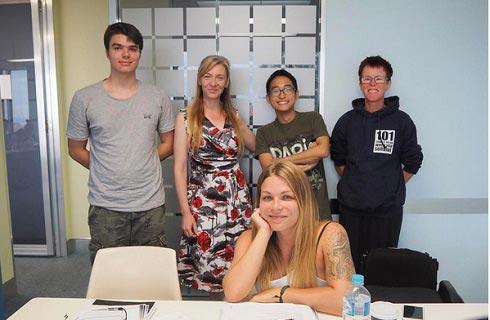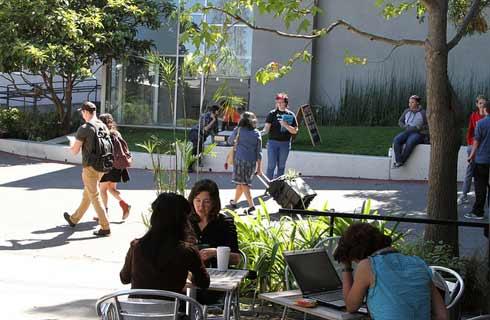- IDP China>
- 课程库>
- 工程与技术>
- 物理科学>
- 化学>
- Doctor of Philosophy in Chemistry - Biophysical and Computational Chemistry
Doctor of Philosophy in Chemistry - Biophysical and Computational Chemistry

学历文凭
Ph.D.

专业院系
Chemistry

开学时间

课程时长

课程学费

国际学生入学条件
In addition to the online graduate application, the program has the following requirements:A baccalaureate degree in Chemistry or a related field from an accredited college or universityUndergraduate academic transcript.Written responses to five short-essay prompts that appear in the application.At least three letters of recommendation from people familiar with the student’s work and background.Non-native speakers of English are required to demonstrate English proficiency. This requirement can be met in one of the following ways:Test of English as a Foreign Language (TOEFL, including the special home edition) with a total score of 80 or above
IDP—雅思考试联合主办方

雅思考试总分
6.5
- 雅思总分:6.5
- 托福网考总分:80
- 托福笔试总分:160
- 其他语言考试:NA
CRICOS代码:
申请截止日期: 请与IDP联系 以获取详细信息。
课程简介
Biophysical chemistry includes research involving both chemical and biological systems and their structures. Our faculty are involved specifically in research that covers biomolecular transport with an emphasis on diffusion, viscosity and electrophoresis; in the determination of structure, dynamics and function of biological macromolecules; the application and development of theoretical and computational methods in biological functions; simulations of key biological processes of relevance to DNA replication and repair; and the structure and interaction properties of nucleic acids.Faculty use a variety of techniques based in physical chemistry to understand and probe biological systems. Included among these techniques are spectroscopic methods such as nuclear magnetic resonance and x-ray diffraction. A solid cyber infrastructure for research computing thrives and includes high-performance computing, grid computing, data storage and visualization. With a growing body of academic and scientific researchers, including faculty and Ph.D. students, from many disciplines as well as from other universities, Georgia State continues to build a diverse and powerful supercomputing grid. The Chemistry Department has a robust history of leveraging computational methods to conduct research.
相关申请
 预科
预科 奖学金
奖学金 实习机会
实习机会 在校学习
在校学习 跨境学习
跨境学习 校园授课-线上开始
校园授课-线上开始 在线/远程学习
在线/远程学习
开学时间&学费
学费信息仅供参考,请与IDP联系以获取详细信息
| 开学时间 | 时长 | 学费 | 地点 |
|---|
学校排名

世界排名401
数据源:
泰晤士高等教育世界大学排名
本校相关课程

语言交流文学学士
学历文凭
Bachelor Degree
开学日期
课程费用总额


妇女,性别和性研究文学学士学位
学历文凭
Bachelor Degree
开学日期
课程费用总额


社会学文学学士
学历文凭
Bachelor Degree
开学日期
课程费用总额


社会工作学士
学历文凭
Bachelor Degree
开学日期
课程费用总额


风险管理与保险业务管理学士学位
学历文凭
Bachelor Degree
开学日期
课程费用总额


呼吸疗法理学学士
学历文凭
Bachelor Degree
开学日期
课程费用总额

其他相关课程

化学哲学博士[量子信息合作计划]
 滑铁卢大学
滑铁卢大学学历文凭
Ph.D.
开学日期
课程费用总额


化学理学硕士[量子计算合作计划]
 滑铁卢大学
滑铁卢大学学历文凭
Masters Degree
开学日期
课程费用总额


化学哲学博士
 滑铁卢大学
滑铁卢大学学历文凭
Ph.D.
开学日期
课程费用总额


化学理学硕士
 滑铁卢大学
滑铁卢大学学历文凭
Masters Degree
开学日期
课程费用总额


化学理学士(荣誉学位)
 滑铁卢大学
滑铁卢大学学历文凭
Bachelor Degree with Honours
开学日期
课程费用总额


化学科学硕士
 劳伦森大学
劳伦森大学学历文凭
Masters Degree
开学日期
课程费用总额










 美国
美国
